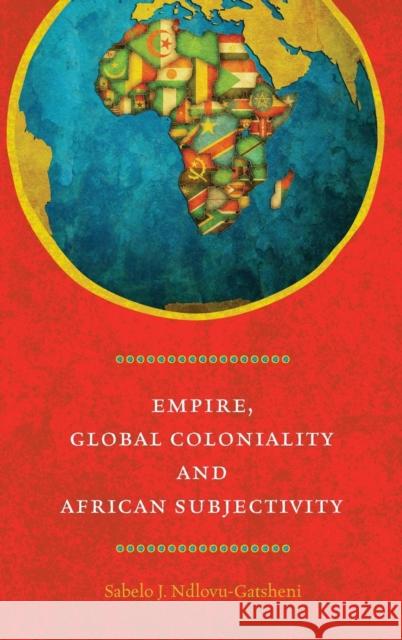Empire, Global Coloniality and African Subjectivity » książka
Empire, Global Coloniality and African Subjectivity
ISBN-13: 9780857459510 / Angielski / Twarda / 2013 / 276 str.
Empire, Global Coloniality and African Subjectivity
ISBN-13: 9780857459510 / Angielski / Twarda / 2013 / 276 str.
(netto: 485,11 VAT: 5%)
Najniższa cena z 30 dni: 498,70
ok. 30 dni roboczych.
Darmowa dostawa!
Global imperial designs, which have been in place since conquest by western powers, did not suddenly evaporate after decolonization. Global coloniality as a leitmotif of the empire became the order of the day, with its invisible technologies of subjugation continuing to reproduce Africa's subaltern position, a position characterized by perceived deficits ranging from a lack of civilization, a lack of writing and a lack of history to a lack of development, a lack of human rights and a lack of democracy. The author's sharply critical perspective reveals how this epistemology of alterity has kept Africa ensnared within colonial matrices of power, serving to justify external interventions in African affairs, including the interference with liberation struggles and disregard for African positions. Evaluating the quality of African responses and available options, the author opens up a new horizon that includes cognitive justice and new humanism.
Global imperial designs, which have been in place since conquest by western powers, did not suddenly evaporate after decolonization. Global coloniality as a leitmotif of the empire became the order of the day, with its invisible technologies of subjugation continuing to reproduce Africa’s subaltern position, a position characterized by perceived deficits ranging from a lack of civilization, a lack of writing and a lack of history to a lack of development, a lack of human rights and a lack of democracy. The author’s sharply critical perspective reveals how this epistemology of alterity has kept Africa ensnared within colonial matrices of power, serving to justify external interventions in African affairs, including the interference with liberation struggles and disregard for African positions. Evaluating the quality of African responses and available options, the author opens up a new horizon that includes cognitive justice and new humanism.











